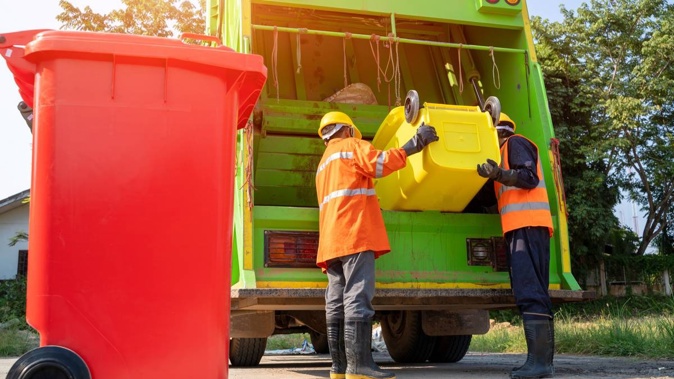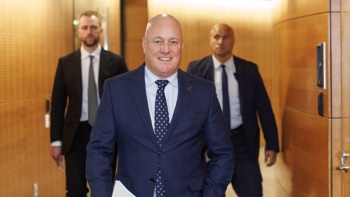
New Zealanders are being encouraged to brush up on recycling etiquette as national standardised rules for kerbside recycling come into force today.
Kerbside standardisation is expected to divert an extra 53,000 tonnes of recycling, about half of the recyclable materials thrown in rubbish bins each year and divert an extra 83,000 tonnes of food waste, the Government says.
From February, all district and city councils will accept only glass bottles and jars, cans, paper and cardboard (including pizza boxes), and plastics numbered 1, 2 and 5 in their recycling collections.
Plastics 1, 2 and 5 include milk, soft drink and juice bottles, large yoghurt containers, 2L hard ice cream containers, cream cheese, sour cream and cottage cheese containers, some dip containers, and some tomato, BBQ, and mustard squeeze bottles. It also includes meat trays and some takeaway containers.
New items excluded from kerbside recycling are items less than 50mm, aerosol cans, liquid paperboard, plastics 3, 4, 6 and 7, aluminium foil and trays, all lids and items over 4 litres.
Plastics 3, 4, 6 and 7 include small yoghurt/sour cream pottles, styrofoam, PVC pipes, polystyrene, biscuit and cracker trays, pill packets, some dip containers, soft plastics (plastics you can scrunch in your hand such as biscuit and cracker bags and trays, packaging from bread, rice, packaged vegetables and fruit, shiny gift wrap) and some tomato sauce, mustard and BBQ squeeze bottles.
Changes will come into effect for Auckland today.
“By only putting in the right recyclable items into our bins, we are helping increase the quality of materials collected for recycling, which in turn reduces disposal costs,” Auckland councillor Richard Hills said in a statement.
“We want to protect our natural environment and recycle more resources back into the economy”.
/cloudfront-ap-southeast-2.images.arcpublishing.com/nzme/BAAGBIUXQFAH3GDADOOGCEAQTU.jpg) What can and cannot be collected in recycling bins from February 1.
What can and cannot be collected in recycling bins from February 1.
Auckland Council said nearly a quarter of the material collected in Auckland’s kerbside recycling is contaminated with non-recyclable items like clothes, nappies, and bagged rubbish.
“This contamination costs Auckland ratepayers an extra $3 million per year in sorting and disposal,” the statement read.
They said multiple items that were never accepted in kerbside recycling still show up in Auckland bins, including food, carpets, clothes, nappies, medical waste, soft plastics and plastic bags, bagged recycling and rubbish and Lithium-ion batteries and appliances.
“Reducing the use of single-use items is the best way to reduce waste, following that, it is recycling right. This change is another important step along the path to Auckland’s goal of zero waste by 2040,” Hills said.
Auckland Council said it collects about 132,000 tonnes every year from kerbside household recycling bins, which is sorted and baled as paper, cardboard, aluminium cans, tin cans, glass, plastics (1, 2 and 5) and sent to facilities onshore and overseas for sale and reprocessing.
The changes come as Auckland Council is looking to move from weekly to fortnightly general rubbish collections, starting in 2026.
The plan is contained in a draft Waste Management and Minimisation Plan which contains targets to reduce the amount of household rubbish put out in bins.
The goal is to reduce kerbside rubbish from a 2022 baseline of 141kg to 120kg per capita by 2028 and to 100kg by 2030, helped along by the recent general rollout of food scrap bins expected to reduce up to 41 per cent of bin contents by weight.
Manurewa-Papakura Ward Councillor Daniel Newman said this is one of the most inconvenient and unproven changes that council officers have ever proposed, and would be deeply unpopular with many Aucklanders.
“While it might be the case that not every household needs the rubbish collected every week, that is a choice that Auckland households rather than politicians and Auckland Council staff should make,” Newman said.
Benjamin Plummer is an Auckland-based reporter who covers breaking news. He has worked for the Herald since 2022.
Take your Radio, Podcasts and Music with you









